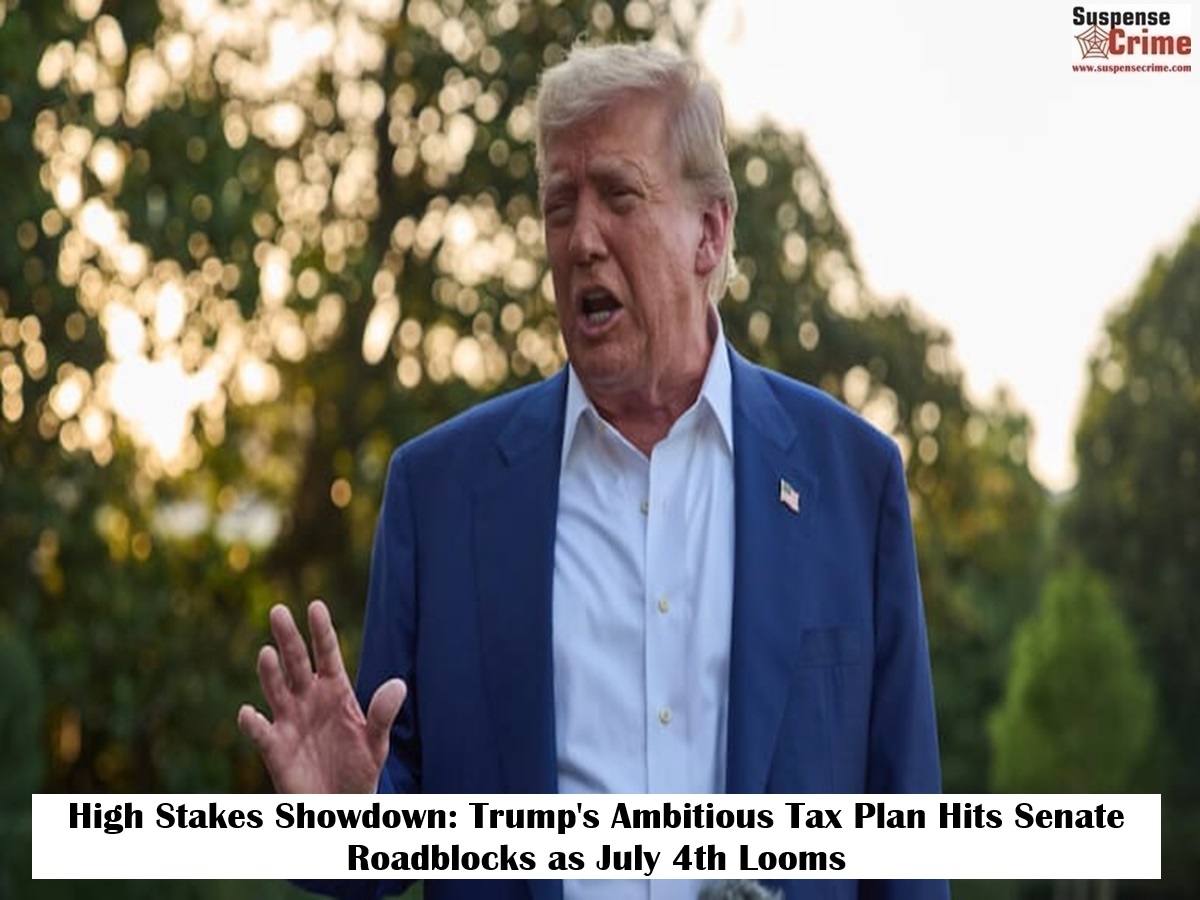
Suspense crime, Digital Desk : Former President Donald Trump's bold vision for a sweeping new tax bill is facing significant headwinds in the US Senate, as the ambitious July 4th deadline for its passage draws ever closer. What was touted as a cornerstone of his potential future agenda is now entangled in complex negotiations and internal Republican skepticism, highlighting the immense challenges of pushing major economic legislation through a divided Congress.
Trump's proposal aims for a broad overhaul of the American tax code, promising deep cuts for individuals and corporations. This initiative is seen by his supporters as a vital step to stimulate economic growth, create jobs, and simplify a notoriously complex system. However, the path from concept to law is proving to be a political minefield, particularly within his own party in the Senate.
The primary obstacles stem from two critical concerns: the staggering cost and its potential impact on the national debt, and the political feasibility of uniting a diverse Republican caucus. Many fiscal conservatives within the Senate are wary of adding trillions to the already ballooning national debt without clear offsets or significant spending cuts. Others are grappling with how the bill might affect various industries and demographics, fearing a backlash from key voter bases.
As the Independence Day deadline approaches, the pressure on Republican leadership is mounting. Failure to secure enough votes could signal a significant setback for Trump's legislative ambitions and expose deep fissures within the party. Negotiators are reportedly engaged in intense, behind-the-scenes discussions, attempting to bridge ideological divides and find a compromise that satisfies both the former President's vision and the Senate's fiscal realities. The outcome of these high-stakes talks will not only shape the future of US tax policy but also serve as a crucial test of political unity and legislative prowess.
Read More: War from the Skies: How Quadcopter Drones are Changing the Face of Terror in Pakistan.

 Share
Share_1820244660_100x75.jpg)
_365039172_100x75.jpg)
_1405734818_100x75.jpg)
_822217780_100x75.jpg)
